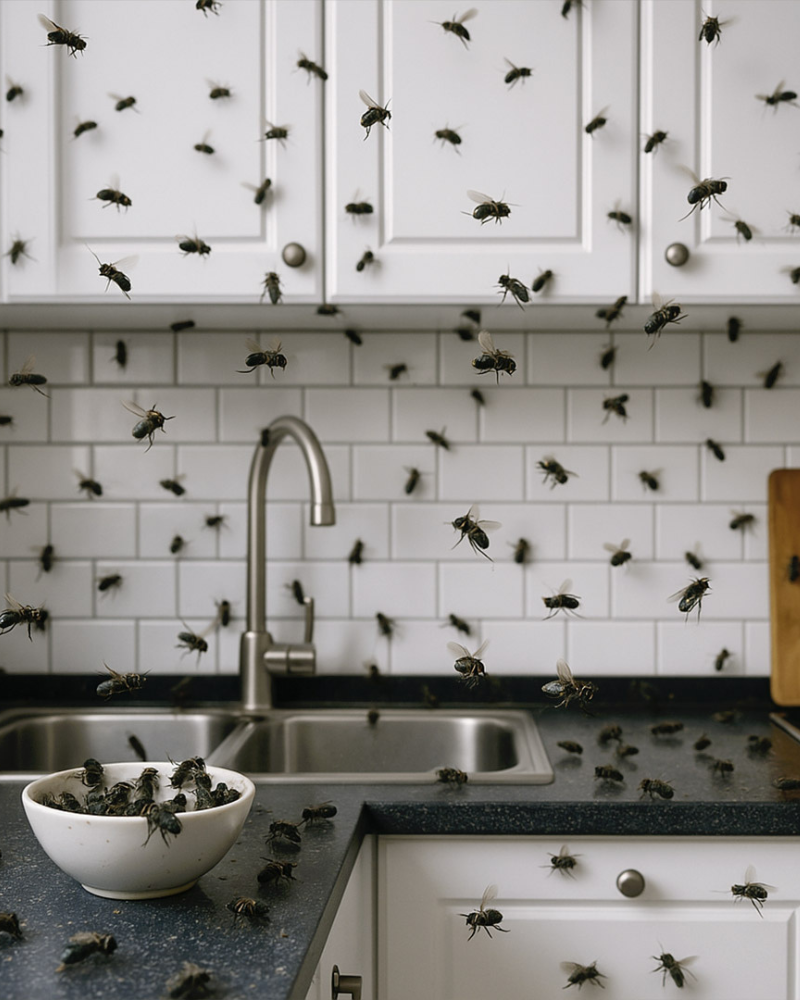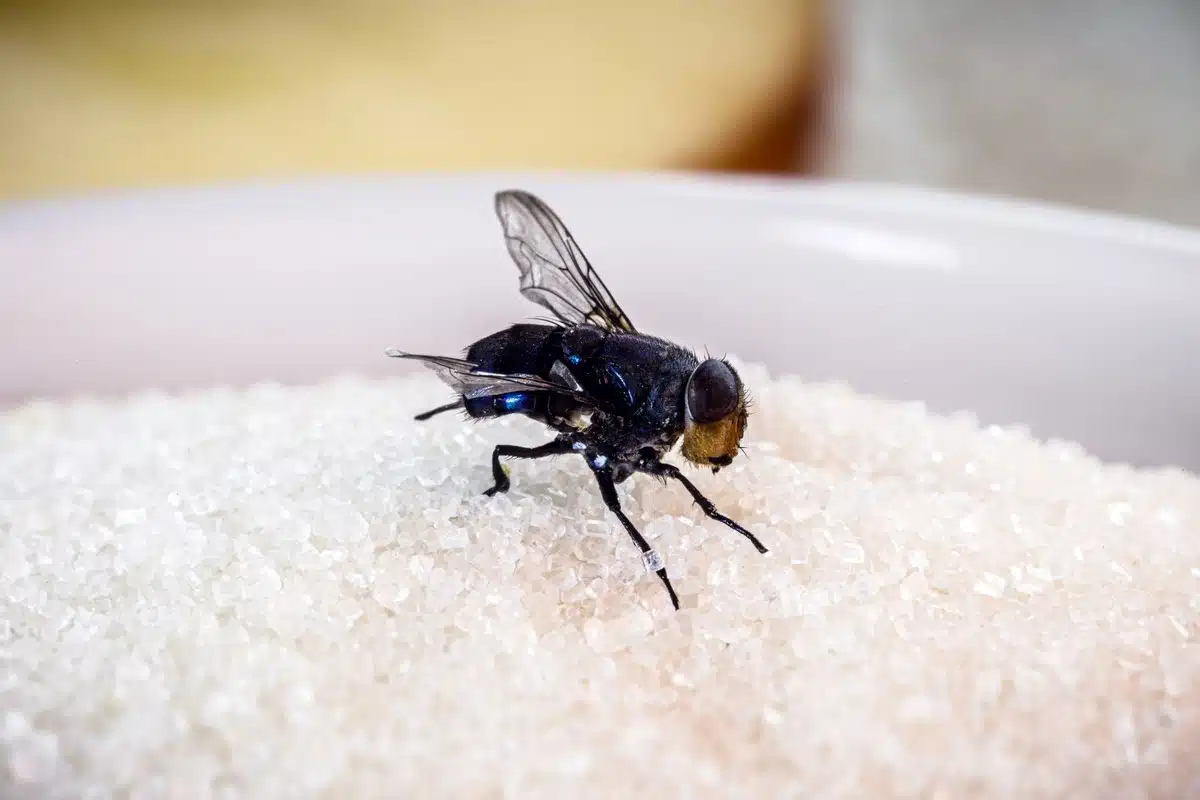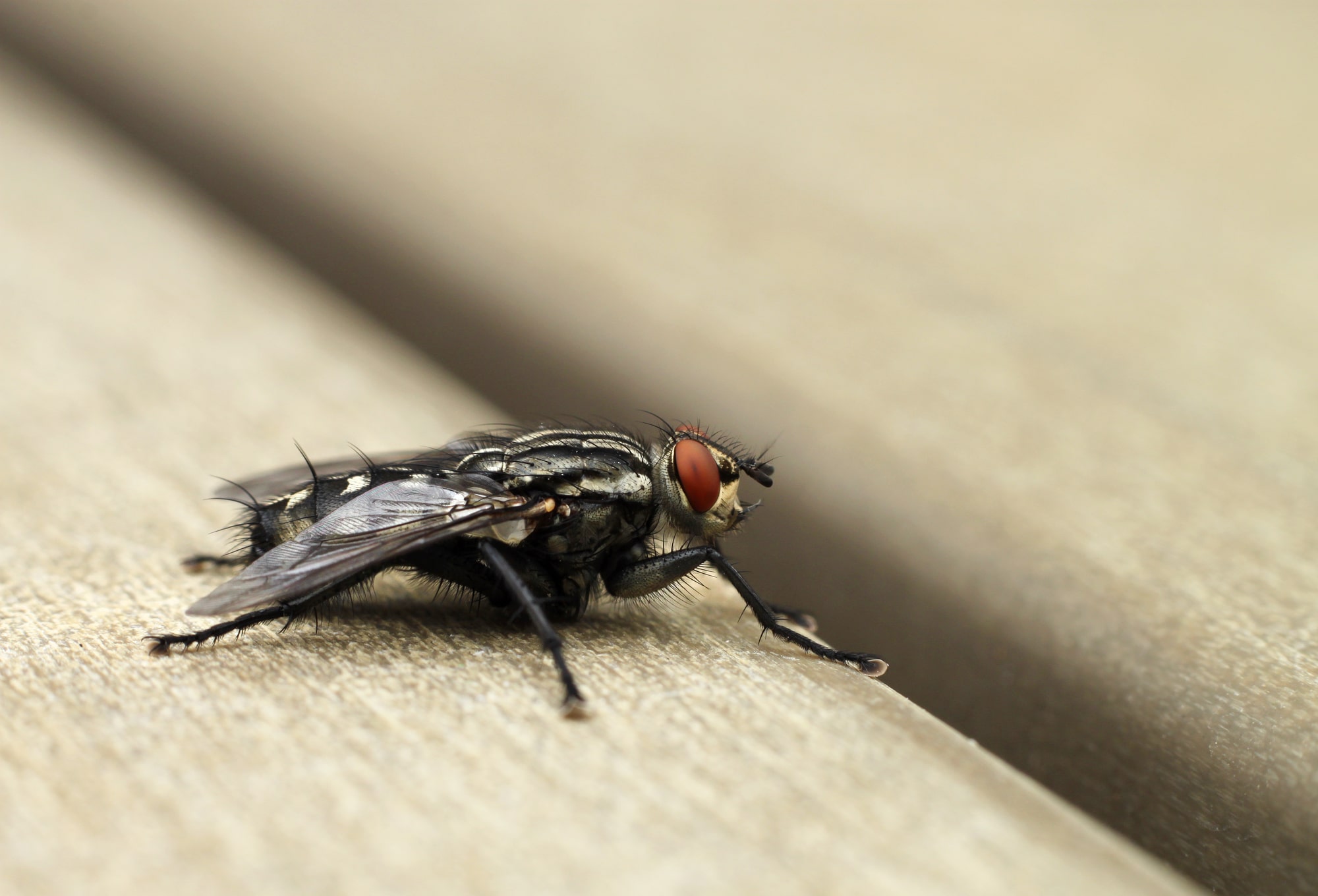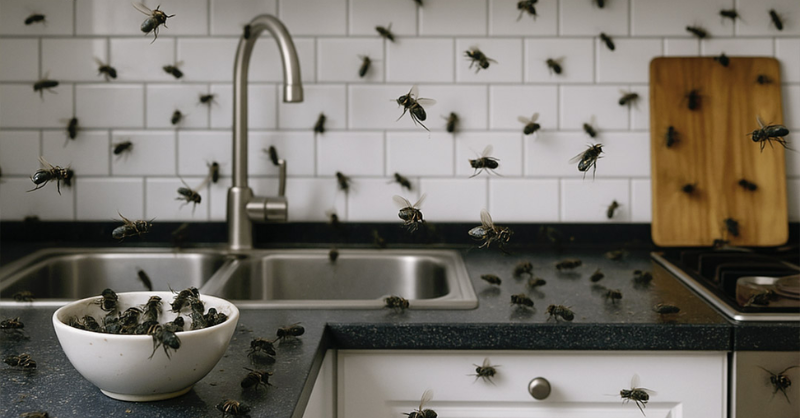
They tend to show up out of nowhere—like uninvited guests. A low buzz in the kitchen, a couple of them circling the fruit bowl, and suddenly your windows turn into their favorite playground. Yep, flies can quickly turn a peaceful home into an irritating aerial show.
But if they’re there, it’s not random. Their presence is actually telling you something about your home. The good news? You don’t need heavy-duty solutions to get rid of them—just a few smart habits.
Why Are There Flies in My House? What They Might Be Telling You
Flies don’t magically appear—they’re drawn in by very specific conditions: food left uncovered, an overflowing trash bin, an overripe piece of fruit, or even lingering humidity. This is especially true in the summer when warm weather speeds up the breakdown of organic waste. And flies never miss an opportunity.
But what’s less known is that a sudden increase in flies can be a warning sign:
Poor ventilation, cleanliness that needs attention, or even a hidden plumbing issue. A small leak or drainage problem can create a perfect breeding ground. If you’ve done your best and the flies still keep coming back, it might be time to inspect your plumbing.

Another thing to keep in mind: not all flies are the same. There are the typical houseflies—big and noisy. Then there are fruit flies and gnats, which are smaller and tend to appear as soon as a piece of fruit gets too ripe. Fruit flies, in particular, are masters at detecting even a drop of fermented juice. Knowing what kind you’re dealing with makes it easier to fight back.
And yes, in rare cases, flies might be a sign of something less pleasant—like a small animal that’s died somewhere in a duct or attic. Not exactly a fun thought, but it happens. If you can’t find the source, it’s a good idea to bring in a professional for a closer look.
Smart Habits to Keep Flies from Moving In
The first and best defense against flies is cleanliness. We’re talking about simple daily habits here: emptying the trash before it overflows, covering ripe fruit, cleaning your sinks and drains—even if they look clean.
Focus especially on the kitchen and bathroom. Keep these areas well-ventilated, especially after cooking or taking a shower. And don’t forget about pet food—leftover kibble or wet food can be an open invitation. Basically, don’t leave anything out.
Here’s a super simple trick: place a halved cork in your fruit bowl. The natural scent of cork tends to repel flies—and it’s totally safe.
And about essential oils: yes, scents like citronella or lavender are known to keep bugs away. But if you have small children or pets, be cautious—some oils can be irritating or not well tolerated.

Natural Remedies That Actually Work
No need to go out and buy a dozen plastic traps. A basic glass of apple cider vinegar with a few drops of dish soap works wonders. The smell attracts the flies, and the soap traps them. Just place it in a discreet corner of the kitchen—problem solved.
Here’s another great tip: put a few repellent plants near your windows or on the balcony. Basil, mint, and lavender are not only pretty but also effective at keeping bugs at bay.
For cleaning surfaces, mix baking soda with lemon juice. It’s a deep cleaner, leaves a fresh scent, and—bonus—won’t leave behind anything that might attract flies.
And for fans of old-school remedies: a small dish of whole cloves on the countertop can be enough to scare off even the boldest fly. Simple, natural, and totally safe.

When Should You Be (Slightly) Concerned?
One or two flies? Not a big deal. But if you suddenly see dozens swarming in, it’s time to investigate. They’ve likely found a cozy spot to lay eggs—maybe a forgotten food item in a bag, or a damp area that hasn’t been cleaned well.
Check behind furniture, under appliances, and around trash cans. And if you still can’t figure it out, call a professional. Some pest control services offer quick and affordable inspections, with safe options for homes with children or pets.
The key is to act quickly. The sooner you respond, the easier it is to take back control.
Now you’ve got all the tools to say “no thanks” to flies—without chemicals, without stress, and with a home that smells fresh and feels clean.

